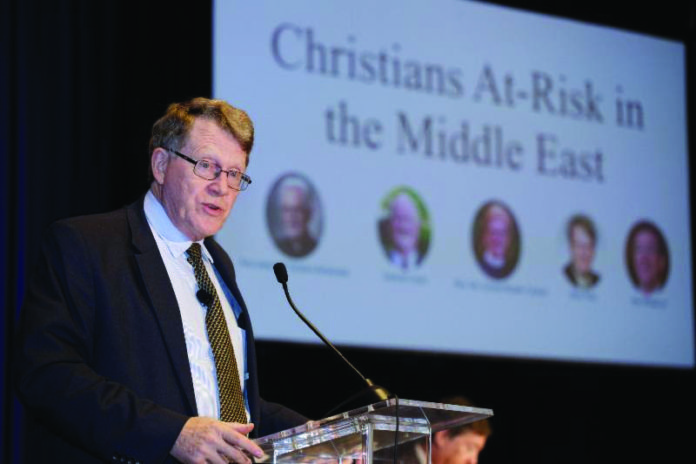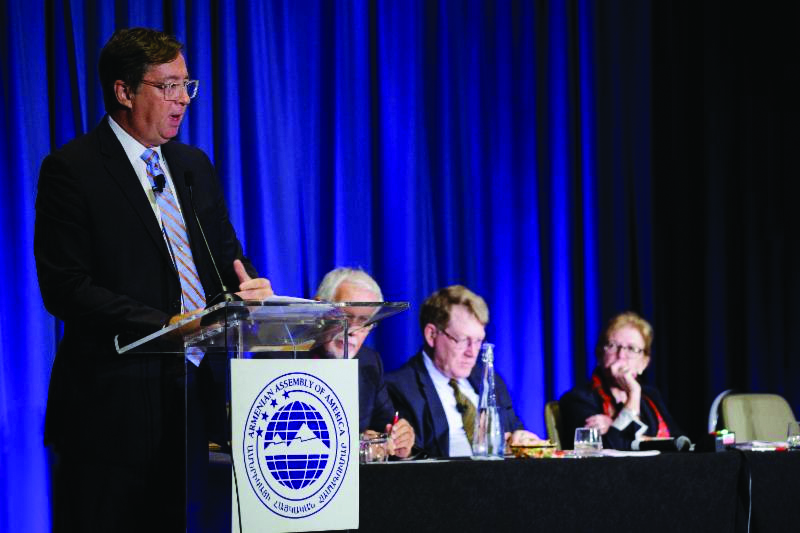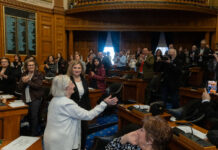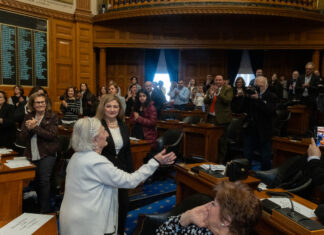WASHINGTON — Armenian-American leaders and activists from across the country gathered earlier this Fall in the nation’s capital for the Armenian Assembly of America 2018 National Advocacy Conference and Gala in a unified effort to strengthen congressional support for United States-Armenia relations and to raise concerns in the House and Senate. As part of its Advocacy Conference, the Assembly organized a panel of experts sharing their insights of the realities of the persecuted Christians in the Middle East.
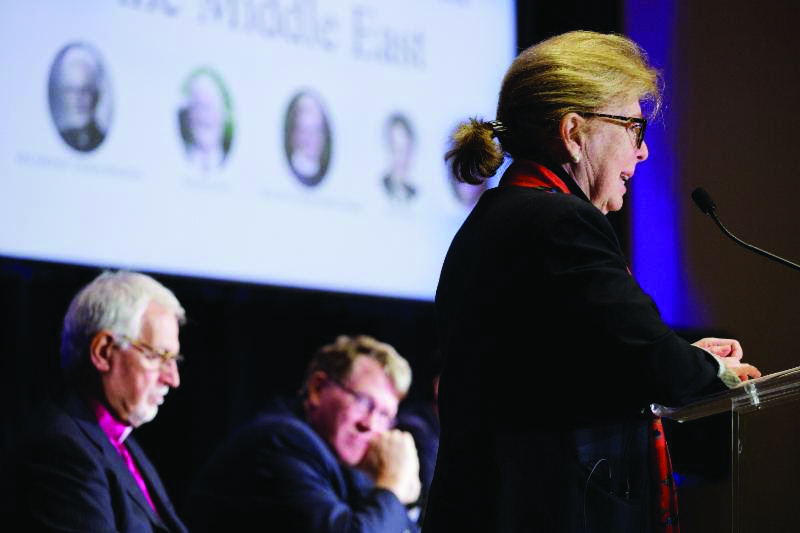
The conference attendees heard from National Council of Churches (NCC) President and General Secretary Jim Winkler, General Board of Church and Society of The United Methodist Church Director Rev. Dr. Susan Henry-Crowe, and The Religious Freedom Institute (RFI) Executive Director Kent Hill, and asked questions about what can be done on Capitol Hill to help this minority community. The panel was moderated by Armenian Church of America (Eastern Diocese) Diocesan Legate Archbishop Vicken Aykazian, former NCC president and member of President Barack Obama’s Advisory Committee on Faith Based Initiatives.
“I think this is an excellent contribution to this assembly to know about the suffering of Christians in the Middle East — the forgotten minorities,” Aykazian said.
RFI Executive Director Hill started the discussion by describing his experience traveling to Armenia while representing the US Government and US Agency for International Development (USAID), and expressed his admiration at seeing some of the oldest churches in Christian history.
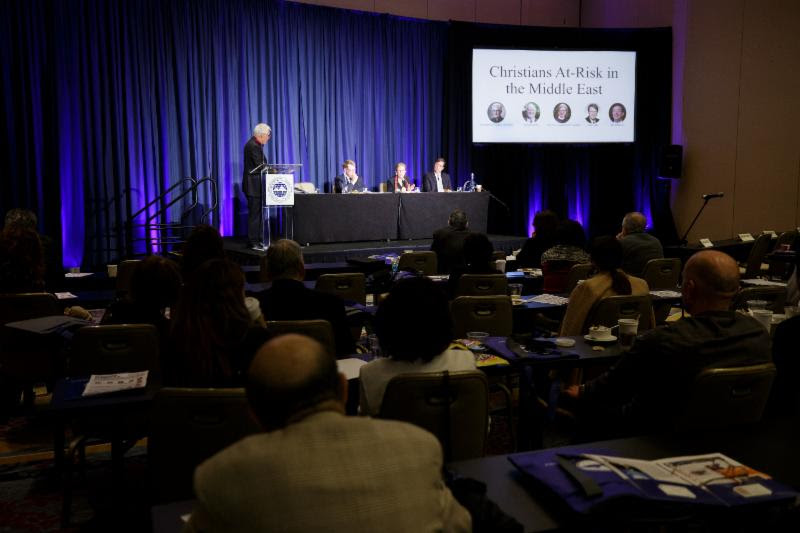
He then continued with daunting facts about the current Christian population in the Middle East, and shared with the audience findings and statistics that he prepared for congressional testimony this past June. “Of the three million Christians who are estimated to have been living in Iraq and Syria in 2003, 75-80 percent of them have been forced to abandon their homes because of sectarian violence, civil war, the rise of the brutal Islamic State. Of the 1.5 million Christians in Iraq in 2003, perhaps only 200,000 remain, and many of them are IDPs (internally displaced persons),” he said.
“Despite repeated Administration promises and Congressional pleas to respond quickly to be of assistance to the IDPs in the quest to return home, this simply did not happen, though I am pleased to report that in recent months there seems to be a commitment to do more in the future than has been done in the past,” Hill added. “It is not too late to make a difference. We are capable of moving much more quickly than we have been moving, but that will never happen if we are not persuaded that this is really a priority.”



